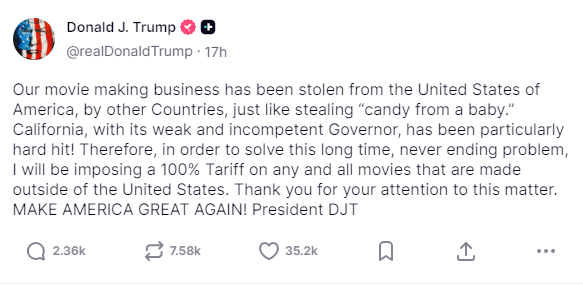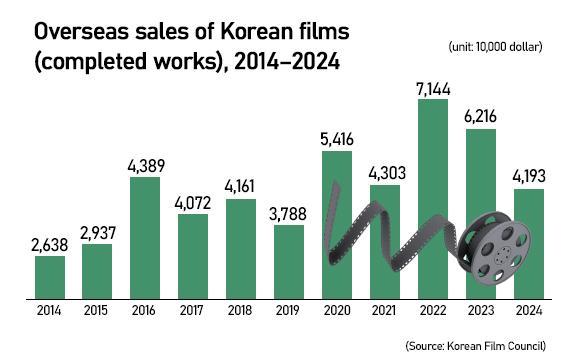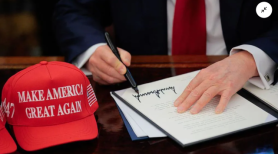
SEOUL, September 30 (AJP) - South Korea's film industry officials and legal experts largely brush off U.S. President Donald Trump's latest threat about slapping tariffs on movies filmed outside the American soil. Speaking on Monday, Trump said his administration would levy "100 percent tariffs" on films that were not fully produced within the United States, repeating a proposal he first raised in May.
South Korea's national film agency, the Korean Film Council (KOFIC), told AJP, the measure, even if enforced, would likely have little impact on Korea's film industry. "In 2024, Korea's film industry revenue from theaters, TV video-on-demand, and overseas sales totaled about 1.4 trillion won ($997.3 million). Exports accounted for only 4 percent, or about 57.1 billion won, and U.S. exports were just 0.4 percent, around 5.7 billion won," KOFIC said. It added that because the U.S. share is so small, "the overall effect on Korea's film industry is expected to be limited."
KOFIC also noted that Hollywood itself might feel the brunt of such a policy. "Large studio projects often rely on overseas filming to benefit from foreign location incentives and reduce costs," it said. With studios now transferring raw footage through high-speed cloud systems instead of physical reels or hard drives, the agency questioned whether tariffs could even be applied in today's digital environment.

Korea's film and drama industry has built a strong presence on the global stage. International hits such as the Netflix series "Squid Game," the historical zombie thriller "Kingdom," and the romantic period drama "Bon Appétit, Your Majesty" have shown Korea's strength in television, while films like "Parasite," which won the Academy Award for Best Picture in 2020, and blockbusters such as "Train to Busan" have cemented Korean cinema's international reputation.
Even so, KOFIC warned that a drawn-out tariff dispute could still have side effects. Less access to the U.S. market might make joint productions harder and reduce opportunities for distribution. Importers could also hesitate to bring Korean titles into the U.S. "This could slightly slow down Korea's global expansion in film, even if the direct financial impact remains small," KOFIC said.
Legal experts in Seoul are also skeptical about the plan. Attorney Kim Ji-hee, a lawyer at the Seoul-based firm ELPS, told AJP the measure lacks clear legal grounds and workable criteria. "There is no solid legal basis for such a tariff, and the criteria for determining what counts as a foreign-made film remain ambiguous," she said. Kim explained that U.S. courts have long treated film as part of the cultural sector, tied closely to freedom of expression and usually excluded from emergency trade measures. "Even if Washington tries to push ahead, the ambiguity of the target and the standards would open the door to serious legal challenges," she added.
Kim also pointed to the practical problems of valuing and taxing digital content. "In the past, customs authorities could impose tariffs on physical media like reels or tapes. But now, when raw footage is transmitted digitally and screenings rely on encrypted files, it is unclear how a tariff could be calculated or enforced," she said.
Copyright ⓒ Aju Press All rights reserved.




